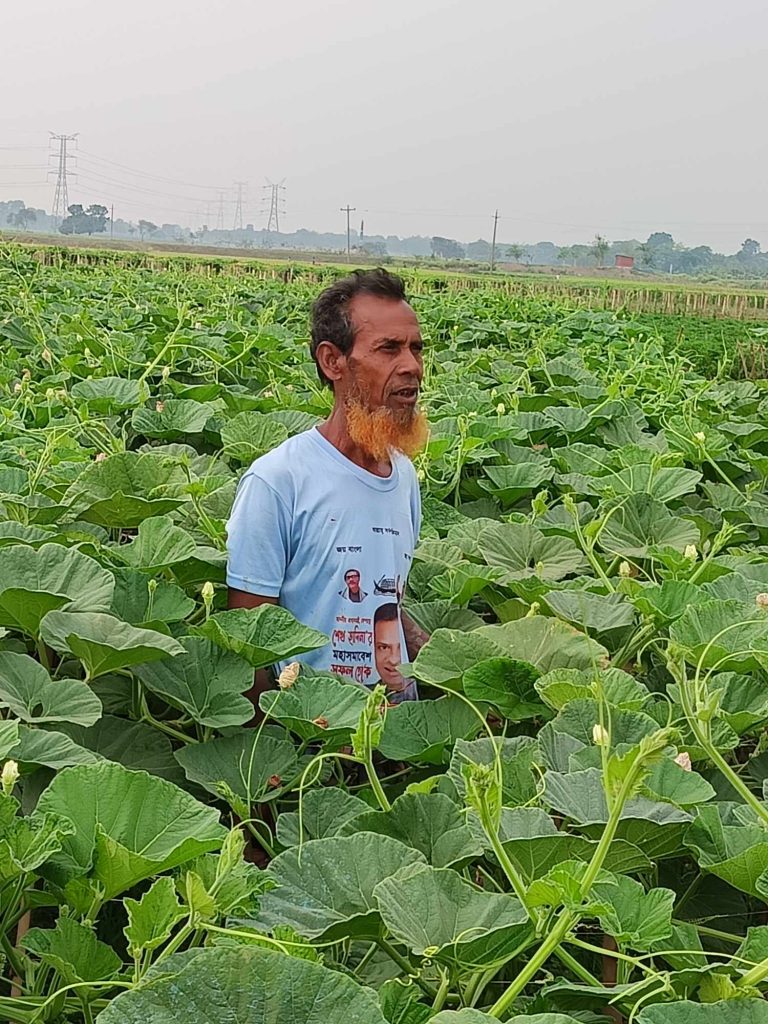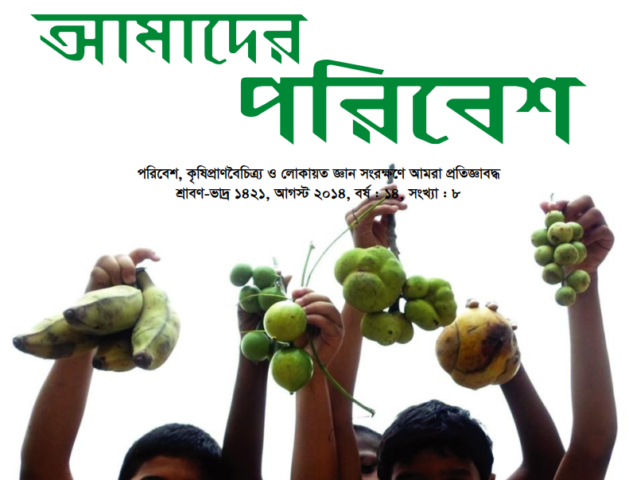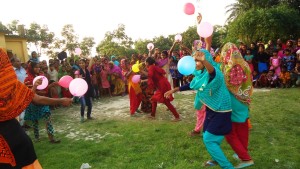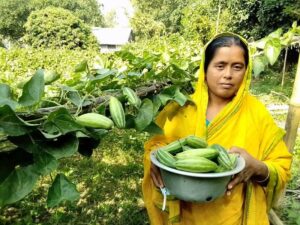By Md. Touhidul from Rajshahi
The Barogachhi Union under Poba of Rajshahi is famous for diverse vegetable production meeting the demand of Rajshahi while the surplus is being exported to other districts. This region extensively grows vegetables not only as garden crops but also as field crops. Vegetables such as pointed gourd, radish, bottle gourd, ash gourd, hyacinth bean, ridge gourd, snake gourd, bitter gourd, eggplant, potato, cabbage, cauliflower, and kohlrabi are sold across the country through wholesalers from the Barogachhi market.
While most of the farmers in the area use chemical fertilizers and pesticides in their fields for vegetable cultivation Md. Abul Bari (55) a farmer from West Karigorpara (Pakar Matha) village uses vermicompost instead of chemicals in vegetable cultivation being inspired by the agroecological practices of women farmers from Karigorpara. He cultivates bottle gourd, ash gourd, and hyacinth bean using only vermicompost. When asked where he learned about the benefit of vermicompost he mentioned that he learned this from Ms. Bilkis Begum from Karigorpara village who has been practicing agroecology being facilitated by BARCIK.
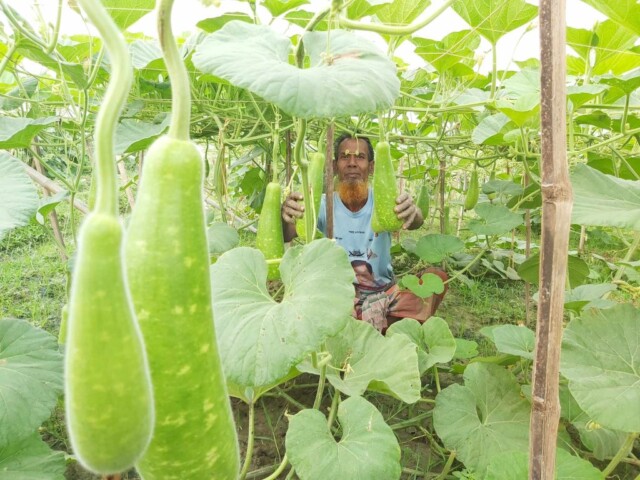
When visiting Abul Bari’s crops lands, he was found tending to his bottle gourd plants. When asked about bottle gourd cultivation, he stated, “During summer, the demand for bottle gourd is high. I have been cultivating bottle gourd for the past 15 years. Initially, I used chemical fertilizers, and at first, the yield was good. However, over time, I noticed a decline in production, and the plants did not stay fresh for long. So, four years ago, I started using vermicompost on my land, and I have seen great benefits today.”
The Role of BARCIK in Promoting agroecology and use of Vermicompost
Since 2016, BARCIK has been working in Barogachhi Union on various community development initiatives, including promoting agroecological practices and environmental conservation. BARCIK encouraged farmers particularly women to practice agroecology and reduce the dependence on chemical fertilizers. As part of agroecological practices, BARCIK trained them on the preparation of vermicompost as well. As part of this initiatives, some women in Karigorpara village took the initiative to produce vermicompost in their homesteads to use as organic fertilizer in vegetable cultivation. BARCIK provided technical support and some materials to assist them. Gradually, the women expanded their production to a commercial scale. This is where Md. Abul Bari learned about agroecology and vermicompost and its benefits. Since then, he has been using vermicompost exclusively for all his crops. On his 27-decimal of land, he has been growing bottle gourd using only vermicompost. He explained, “Vermicompost helps the plants grow strong and healthy, and the vines last much longer. The leaves remain large and green, and the yield is significantly higher. It also improves the soil’s water retention capacity and strengthens the roots.”

He further added that before switching to vermicompost, his soil lacked fertility, and the yield was poor despite using chemical fertilizers. Previously, he could harvest 110–120 bottle gourds per week. However, after adopting vermicompost, his plants remain healthy for longer, and now he harvests 250–270 bottle gourds per week. His annual income from bottle gourd cultivation has reached BDT one lakh 20 thousands.
Md. Abul Bari expressed his satisfaction with vermicompost, highlighting that it reduces production costs and irrigation needs while restoring soil fertility. He noted that the presence of earthworms in his soil has significantly increased, indicating improved soil health.
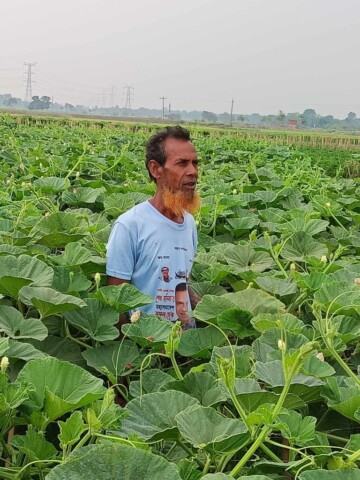
It is to be noted that there are many farmers in our country who strive to protect the soil, environment, and nature through their agroecological practices. Md. Abul Bari is one such farmer. If governmental and non-governmental organizations take initiatives to recognize and support such farmers, they can contribute greatly to the nation’s agricultural and environmental sustainability.

